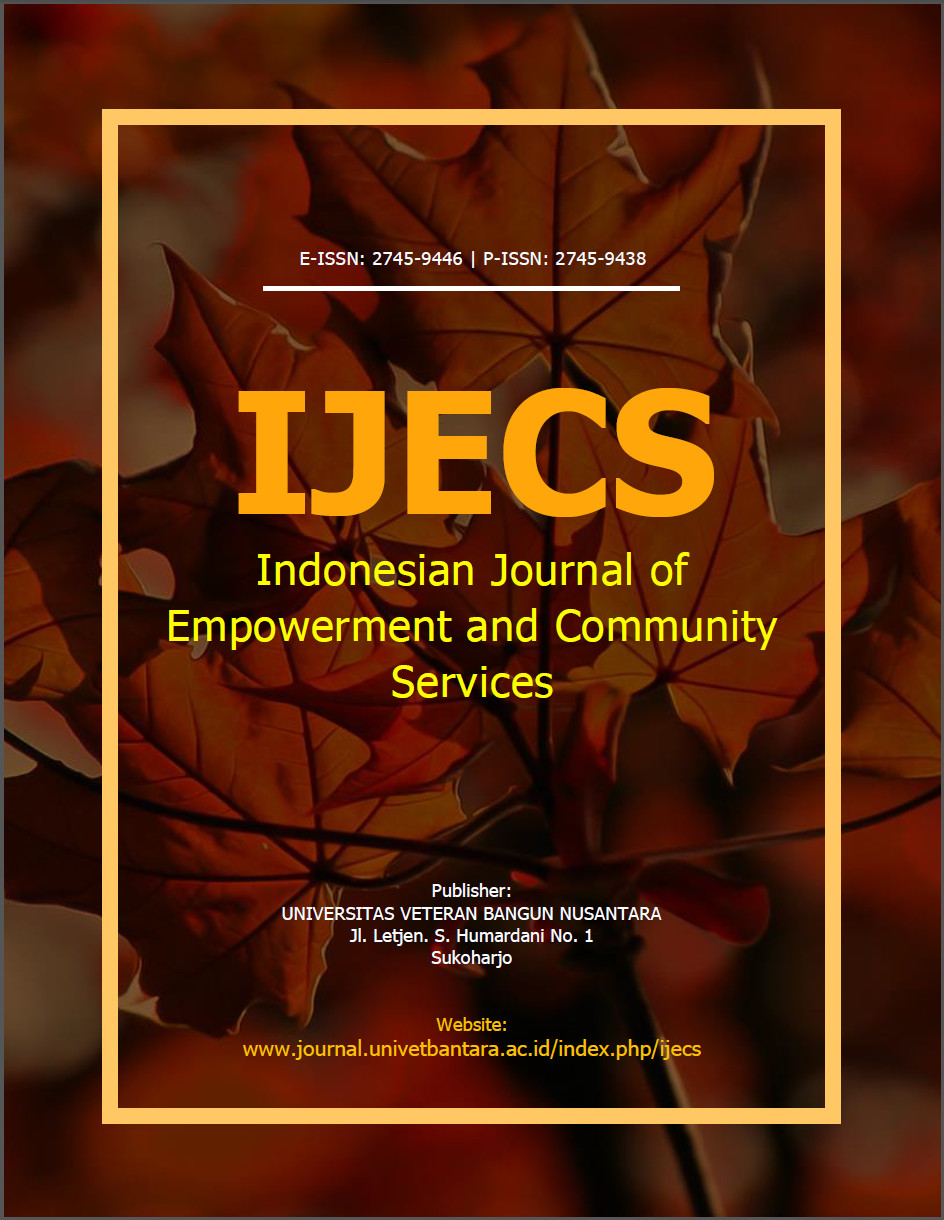Black Soldier Fly as an Alternative to Strengthen the Local Economy and Manage Organic Waste in Mojolaban District
DOI:
https://doi.org/10.32585/ijecs.v6i2.7258Abstract
Waste remains a major issue in various regions, particularly organic waste. Unmanaged organic waste can cause environmental pollution and contribute to increased greenhouse gas emissions. In line with the Sustainable Development Goals (SDGs), particularly SDG 12 (Sustainable Consumption and Production) and SDG 13 (Action on Climate Change), innovative solutions are needed to manage organic waste more effectively and efficiently. Waste banks, as environmental advocates, are currently focusing more on managing inorganic waste because it is considered to have greater market value than organic waste. Black Soldier Fly is an alternative in processing organic waste that has economic value. Community service activities aim to strengthen the economy of the community in Demakan Village, Mojolaban District, Sukoharjo Regency through black soldier fly training as an environmentally friendly and sustainable method of managing organic waste. This activity includes outreach, training, and mentoring for waste bank members in Demakan Village, Mojolaban District, Sukoharjo Regency. The black soldier flies produced can be used as alternative feed for the fisheries and poultry sectors, thus supporting the circular economy concept. This activity is expected to raise public awareness of more productive organic waste management, reduce the negative impact of waste on the environment, and create business opportunities based on local resources. Thus, this activity not only contributes to improving community welfare but also accelerates the achievement of the SDGs through more inclusive and sustainable economic development.
Downloads
Downloads
Published
How to Cite
Issue
Section
License
Copyright (c) 2025 Amalia Nadifta Ulfa, Joko Sutrisno, Indah Nurhidayati, Agustono Agustono, Rhina Uchyani Fajarningsih, Refa’ul Khairiyakh, Evi Irawan

This work is licensed under a Creative Commons Attribution-ShareAlike 4.0 International License.
Authors who publish with the IJECS: Indonesian Journal of Empowerment and Community Services agree to the following terms:
- Authors retain copyright and grant the journal the right of first publication with the work simultaneously licensed under a Creative Commons Attribution License (CC BY-SA 4.0) that allows others to share the work with an acknowledgment of the work's authorship and initial publication in this journal.
- Authors are able to enter into separate, additional contractual arrangements for the non-exclusive distribution of the journal's published version of the work (e.g., post it to an institutional repository or publish it in a book), with an acknowledgment of its initial publication in this journal.
- Authors are permitted and encouraged to post their work online (e.g., in institutional repositories or on their website) prior to and during the submission process, as it can lead to productive exchanges, as well as earlier and greater citation of published work.





